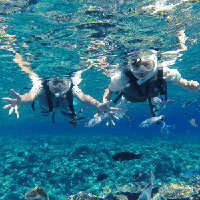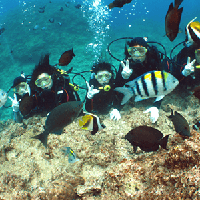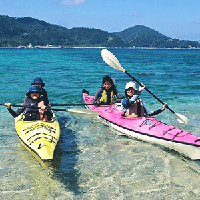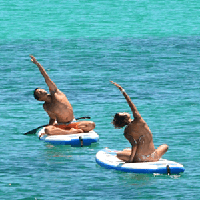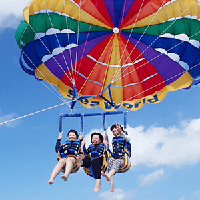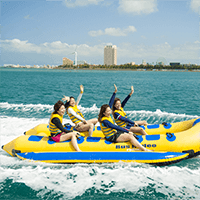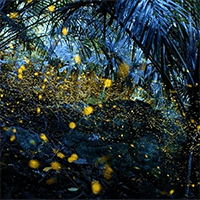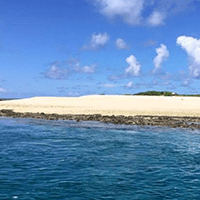Kansai in Historic sites tour
- Age 1~Age 70
- 5~6 hours
- 07:20
Explore Japan's hidden gems: Ine Town, Amanohashidate, and Miyama Kayabuki Village *Ine Town - Known as the "Venice of Japan," you'll feel like you're in another world when you float by. One of the most beautiful villages and towns in Japan, this town has over 230 funaya houses lined up along the shores of Ine Bay, allowing you to feel the pristine scenery of nature. Stroll or bike through the picturesque streets and admire the crystal blue waters blending with the deep green mountains. At Funaya Hiyori, you can visit not only exquisite cafes but also real funaya houses. *Amanohashidate - Known as one of the "Three Views of Japan," Amanohashidate is a sandbar that looks like a bridge in the sky. Standing at the observation deck of Mount Monju, Amanohashidate looks like a dragon and overlooks this beautiful natural wonder. Don't forget to sign a fan at Chienji Temple to pray for academic success. You can also take a leisurely stroll along the beach to enjoy the fine white sand and cool seawater. Miyama Thatched Village - Experience the charm of ancient Japan and enter "Miyama Thatched Village" to feel the tranquility of the past. The thatched roof houses here are known as one of the three largest thatched roof houses still standing in Japan, and it feels like you've wandered into an isolated wonderland. Don't forget to try Miyama's milk soft serve at "Korofukuro" and check in at the red postbox that captures a moment in Miyama. This trip will allow you to appreciate Japan's most beautiful natural scenery and traditional culture, such as the tranquility of the boathouse on the water and the majestic view of the sandbar, and will leave you with unforgettable memories.
- Age 1~Age 70
- 5~6 hours
- 08:40 / 09:50
08:40 Boarding and disembarking at the meeting point, Nihonbashi Station Exit 2 (Namba-Shinsaibashi area)09:50 Boarding and disembarking at the meeting point, Kyoto Station Hachijo Exit (in front of Seven-Eleven)10:50 ▼MIHO MUSEUM - IM Pay's Shangri-La (free walk and free lunch / about 2.5 hours)13:50 ▼Kyu-Chikurin-in Temple - Reflections like Ruriko-in Temple (about 60 minutes)15:20 ▼Lake Biwa Shirahige Shrine Torii in the lake (about 40 minutes)16:00 ▼After a fun day of sightseeing, we start to return. 19:00 ▼Shinsaibashi, Dotonbori area (free time / about 1 hour)Guests can play in the Osaka Shinsaibashi area for about an hour. After playing, guests who have taken the course that gets on and off at the meeting point will disband in the Shinsaibashi area.
- Age 1~Age 70
- Over 6 hours on the day
- 09:30
09:30-11:00 ▼Pick up/drop off/pick up at hotel/private inn; we will not wait after the scheduled time, so we recommend that you wait at the meeting point 10 minutes before departure. 12:00 ▼Kobe Port/Mosaic Ferris Wheel (free walk/lunch on your own/approx. 2.5 hours) Kobe is a trading port with a 140-year history as one of the world's leading international ports. It flourished as a foreign settlement during the Meiji period, and many of its exotic buildings remain today, making it popular with tourists as they look great on social media. Kobe landmarks such as the Port Tower, Mosaic Ferris Wheel, and the large shopping mall umie stand side by side. Take a leisurely stroll along the sea while feeling the sea breeze. 14:30 ▼Kitano Ijinkan-gai (approx. 1 hour) Since the opening of Kobe Port, many foreigners have lived here since the Meiji period, and the Kitano Ijinkan-gai is characterized by its streets that still convey the atmosphere of the Meiji period. On a hill overlooking the sea, there are many public foreign-style houses, including the "Kazamidori no Yakata" (Weathercock House), a national important cultural property with a weathercock on the roof as its symbol, and the "Moegi no Yakata" (Moegi House), the residence of former U.S. Consul General Hunter Sharp, where you can experience exotic culture and history. The Kitano area of Kobe, which is crowded with tourists, is full of wonderful shops. Kitano, which is full of exotic atmosphere and harmony, is full of discoveries that will make you want to come back again and again. 16:30 ▼Arima Onsen (free stroll / about 1.5 hours) Arima Onsen, the inner sanctum of Kansai, loved by Toyotomi Hideyoshi, is one of the three oldest hot springs in Japan. It has been loved by many literary figures and celebrities, and the hot spring town is still full of traditional atmosphere. You can enjoy the different spring qualities of Arima's specialty "Kinsen", a brown-colored hot spring containing iron and salt, and the colorless and transparent "Ginsen", which is popular with women as it makes your skin smooth. There are two public outdoor baths, Kin no Yu (gold spring) and Gin no Yu (silver spring). There are also inns that offer day-trip bathing, and Arima Onsen Taiko no Yu, a hot spring theme park with 24 types of baths. We recommend touring the seven springs, including Tenjinsengen, which emits white smoke from the central chimney while making a gurgling sound. 18:00 ▼ Night view of Mt. Rokko (about 1.5 hours) Mt. Rokko is located in the southeast of Hyogo Prefecture. Its international history, excellent hiking trails, and stunning views of Kobe and Osaka make it one of the prefecture's main tourist destinations. On top of Mt. Rokko, there are observation spots where you can see the cities of Kobe and Osaka, and the panoramic view is breathtaking! There are also plenty of spots where you can enjoy delicious food and drinks while looking at the beautiful night view, so you can enjoy Kobe with both your eyes and your tongue. 19:30 ▼ The tour ends. 20:30 ▼ The day's itinerary ends happily!
- Age 1~Age 70
- 5~6 hours
- 07:30
07:30-08:30: Pick-up/drop-off/transfer to hotel/private inn Hotels/private inns within the Osaka Loop Line 10:00 ▼ Kiyomizu-dera area (individual worship, free stroll, free lunch/approximately 3 hours) Recommended sightseeing course Course 1: Kiyomizu-dera (customer pays admission fee) - Ni-san-nen-zaka - Ishibe-koji - Gion·Hanami-koji-dori - Yasaka Shrine You can visit your favorite spots according to your stamina and time~Course 2: Kimono experience (Customers who are interested can wear a kimono and enjoy the old townscape and touring Kiyomizu-dera Temple. Let's take pictures of the wonderful moment.) (There are many kimono shops near Kiyomizu-dera Temple and Fushimi Inari Taisha Shrine. We recommend renting a kimono at a shop at Kiyomizu-dera Temple and returning it at a shop at Fushimi Inari Taisha Shrine. The fee is at the customer's expense.) 13:30 ▼ Fushimi Inari Taisha Shrine (individual visit and free stroll / about 70 minutes) 16:00 ▼ Nara Park (individual visit and free stroll / about 1.5 hours) "Deer and autumn leaves" interweave "Nara Park" The contrast between the autumn leaves and evergreen trees is vivid Recommended tourist spot [Todaiji Temple] (Admission fee is at the customer's expense.) Todaiji Temple was built during the Nara period. Nara is popular with tourists and once served as the capital of Japan. It is registered as a World Heritage Site as one of the "Cultural Monuments of Ancient Nara" by UNESCO. Todaiji Temple has eight national treasure buildings, 14 buildings with 24 national treasure Buddha statues, and nine other national treasures including paintings and books. The famous Great Buddha, the Great South Gate, the Kongorikishi statues, and the Hokkedo Hall, as well as the Buddha statues enshrined within, are all national treasures. There are very few places in Japan where you can see so many national treasures at once. Admission fee: Todaiji Temple Great Buddha Hall: 600 yen for adults (junior high school students and above), 300 yen for elementary school students; Great Buddha Hall and Todaiji Museum: 1000 yen for adults (junior high school students and above), 400 yen for elementary school students 17:30▼After a fun day of sightseeing, we start to head back. 18:30Shinsaibashi, Dotonbori area (Guests on the course that takes you to your hotel or guesthouse should wait for the shuttle bus. When the shuttle bus arrives, we will take you back to your hotel or guesthouse and the tour will end.)
- Age 1~Age 70
- Over 6 hours on the day
- 10:30
10:30▼Board and disembark at the meeting point, Nippombashi Station Exit 2 (Namba-Shinsaibashi area)12:00▼Mosaic Ferris Wheel at Kobe Port (free time to explore, lunch on your own / approx. 2.5 hours)14:30▼Kitano Ijinkan-gai (approx. 1 hour)16:30▼Arima Onsen (free time to explore / approx. 1.5 hours)18:00▼Mt. Rokko and night view (approx. 1.5 hours)19:30▼Return to Osaka city and disband in the Shinsaibashi/Dotonbori area / Drop off at your hotel in Osaka city and the tour will end. 20:30▼The day's itinerary ends happily!
- Age 1~Age 70
- Over 6 hours on the day
- 10:30
Boarding and disembarking at the meeting point 08:40 ▼Nihonbashi Station Exit 2 (Namba-Shinsaibashi area) 09:50 ▼Kyoto Station Hachijo Exit (in front of 7-Eleven) 07:30-08:30 ▼Pick up/drop off/pick up at hotel/private inn, hotel/private inn on the Osaka Loop Line 12:00 ▼Kobe-Sanda Premium Outlets (free walk/lunch on your own/about 4 hours) (does not visit Kitano Ijinkan-gai and Kobe Port) There are many outlet malls in the Kansai area, which includes Osaka and Kyoto, two of Japan's most popular tourist destinations. Among them, Kobe-Sanda Premium Outlets, the largest in western Japan, has more than 200 stores, mainly domestic and international luxury brands. Modeled after the high-end residential area of Pasadena, a suburb of Los Angeles, Kobe-Sanda Premium Outlets has about 210 stores of famous domestic and international brands, from luxury brands to popular select shops, interior goods, sports, miscellaneous goods, and restaurants, and you can enjoy shopping all day long in an extraordinary space. There is a park in the facility, so if you get tired of shopping, you can take a break while looking at the Akashi Strait. Kobe-Sanda Premium Outlets is also famous as a facility where you can shop without getting wet in the rain. It is a spot where you can enjoy yourself to the fullest, with a customer-first approach. *Present your passport at the information center to receive a discount coupon. 16:30 ▼Arima Onsen (free stroll / about 1.5 hours) Arima Onsen, the inner sanctum of Kansai, loved by Taiko and Hideyoshi, is one of Japan's three oldest hot springs. It has been loved by many literary figures and famous people, and even today the hot spring town is full of traditional atmosphere. You can enjoy baths with different spring qualities, including the brown Arima specialty "Kinsen" that contains iron and salt, and the colorless and transparent "Ginsen" that is popular with women as it makes your skin smooth. There are two public outdoor baths, Kin-no-yu (Kinsen) and Gin-no-yu (Ginsen). Other attractions include day-trip bathing at ryokan inns and Arima Onsen Taiko no Yu, a hot spring theme park with 24 types of baths. We recommend touring the seven springs, including Tenjinsengen, which emits white smoke from the chimney in the center while making a gurgling sound. 18:00 ▼ Night view of Mt. Rokko (about 1.5 hours) Mt. Rokko, selected as one of the "New Top Three Night View Cities in Japan", is located in the southeast of Hyogo Prefecture. It is one of the prefecture's main tourist destinations, with its international history, wonderful hiking trails, and wonderful views of Kobe and Osaka. On top of Mt. Rokko, there are many observation spots overlooking the city of Kobe and Osaka, and the panoramic view is overwhelming! There are also plenty of spots where you can enjoy delicious food and drinks while looking at the beautiful night view, so you can enjoy Kobe with both your eyes and your tongue. 19:30 ▼ Return to Osaka city and disband in the Shinsaibashi/Dotonbori area/The tour ends with a drop-off at your hotel in Osaka city. 20:30 ▼The day's itinerary comes to a fun end!
- Age 1~Age 70
- Over 6 hours on the day
- 08:40 / 09:50
Boarding and alighting at the meeting point 08:40 ▼Nihonbashi Station, Exit 2 (Namba-Shinsaibashi area) 09:50 ▼Kyoto Station, Hachijo Exit (in front of 7-Eleven) 07:30-08:30 ▼Pick up/drop off/pick up at hotel/private lodging, hotel/private lodging on the Osaka Loop Line 10:30 ▼Sanzenin Temple (free time to explore/lunch on your own/approximately 140 minutes, fees at customer's expense) Sanzenin Temple in Ohara, Kyoto is a monzeki temple where generations of princes and members of the imperial family have served as chief priests. You can enjoy the beauty unique to Kyoto, such as the pond ornamental gardens of Shuhekien and Yuseien, which have a pond stroll garden, where you can feel the richness of the four seasons, the prestigious Shinden and Kyakuden, and Ojo Gokuraku-in, an important cultural property that houses national treasures. You can enjoy beautiful scenery throughout the four seasons, with mountain cherry blossoms and rhododendrons in spring, hydrangeas in early summer, autumn leaves in autumn, and covered in snow in winter. (Admission fee: 700 yen for adults, 400 yen for junior and senior high school students, 150 yen for elementary school students) Kyobi Chaya Genre: Tofu dishes, creative cuisine Soba Ippuku Chaya Genre: Udon, tofu dishes, sweets shop Rokawa Chaya Genre: Udon, tofu dishes, sweets shop Shino Matsumon Genre: Japanese cuisine, tofu dishes 14:00 ▼Arashiyama (free stroll / about 3 hours) Located in the northwest of Kyoto, Arashiyama attracts many people with its world-famous bamboo forest and beautiful scenery that changes with the seasons. The area is dotted with temples, old imperial villas, and famous historical sites, many of which are recognized as national treasures or world heritage sites. The entire area has been designated as a scenic spot by the Japanese government. The tourist train that connects Arashiyama and Kameoka is the "Sagano Scenic Train." The 7.3km route from "Torokko Saga Station" to "Torokko Kameoka Station" takes about 25 minutes, and you can enjoy the spectacular scenery of the Hozugawa Valley in every season, including beautiful cherry blossoms in spring, fresh greenery and the murmuring of the river in summer, glossy autumn leaves in autumn, and snowy scenery in winter. It is a scenic spot that delights the eyes of visitors throughout the year. Restaurants and souvenir shops line the streets, and there is a shop where you can taste sweets near Togetsukyo Bridge. Recommended sightseeing course (We recommend that you choose one to enjoy sightseeing according to your preference. The fee is at the customer's expense.) 17:00 ▼ After enjoying the day's itinerary, we start to return. 19:00 ▼ Shinsaibashi, Dotonbori area (free stroll / about 1 hour) Guests can play in the Shinsaibashi area of Osaka for about an hour. After playing, guests who are boarding and disembarking at the meeting point will disband in the Shinsaibashi area. Guests who are taking a course to a hotel or guesthouse should wait for the shuttle bus. Once the shuttle arrives, it will take you back to your hotel or guesthouse, where your tour will end.
- Age 1~Age 70
- Over 6 hours on the day
- 08:40 / 09:50
Board and disembark at the meeting point08:40▼Nihonbashi Station, Exit 2 (Namba-Shinsaibashi area)09:50▼Kyoto Station, Hachijo Exit (in front of 7-Eleven)10:30▼Kinkaku-ji Temple (approx. 40 mins)Visiting fees are at the customer's expense.12:00▼Kiyomizu-dera Temple area (individuals will visit, stroll freely, and have lunch on their own / approx. 3.5 hours)15:30▼Fushimi Inari Taisha Shrine (approx. 70 mins)17:00▼After a fun end to the day's itinerary, start heading back.19:00▼Shinsaibashi, Dotonbori area (free stroll / approx. 1 hour)
- Age 1~Age 70
- 5~6 hours
- 08:40 / 09:50
Boarding and disembarking at the meeting point 08:40▼Nihonbashi Station Exit 2 (Namba-Shinsaibashi area) 09:50▼Kyoto Station Hachijo Exit (in front of 7-Eleven) 10:00▼Kiyomizu-dera area (individuals will visit the temple, stroll around freely, and have lunch at their leisure / approx. 3 hours) Recommended sightseeing course Course 1: Kiyomizu-dera Temple (customers are responsible for admission fees) - Ni-Sannenzaka - Ishibekoji - Gion·Hanamikoji-dori - Yasaka Shrine You can visit your favorite spots according to your stamina and time~Course 2: Kimono experience (Customers who are interested can wear a kimono and enjoy the old townscape and touring Kiyomizu-dera Temple. Let's take pictures of the wonderful moment.) (There are many kimono shops near Kiyomizu-dera Temple and Fushimi Inari Taisha Shrine. We recommend renting a kimono at a shop at Kiyomizu-dera Temple and returning it at a shop at Fushimi Inari Taisha Shrine. The fee is at the customer's expense.) 13:30 ▼ Fushimi Inari Taisha Shrine (individual visit and free stroll / about 70 minutes) 16:00 ▼ Nara Park (individual visit and free stroll / about 1.5 hours) "Deer and autumn leaves" interweave "Nara Park" The contrast between the autumn leaves and evergreen trees is vivid Recommended tourist spot [Todaiji Temple] (Admission fee is at the customer's expense.) Todaiji Temple was built during the Nara period. Nara is popular with tourists and once served as the capital of Japan. It is registered as a World Heritage Site as one of the "Cultural Monuments of Ancient Nara" by UNESCO. Todaiji Temple is home to eight national treasure buildings, 14 locations with 24 national treasure Buddha statues, and nine other national treasures including paintings and books. Famous sights such as the Great Buddha, the Great South Gate, and the Kongorikishi standing statues are all national treasures, as are the Hokkedo temple buildings and the Buddha statues enshrined within. There are very few places in Japan where you can see so many national treasures at once. Admission fees: Todaiji Temple Great Buddha Hall: Adults (junior high school students and above) 600 yen, elementary school students 300 yen; Great Buddha Hall and Todaiji Museum: Adults (junior high school students and above) 1000 yen, elementary school students 400 yen 17:30▼After a fun day of sightseeing, we start heading back. 18:30 Shinsaibashi, Dotonbori area (free time/approximately 1 hour)
- Age 1~Age 70
- 4~5 hours
- 08:40 / 09:50
Dear customers, the following is a reference itinerary for that day (please note that the tour guide may adjust the order of the itinerary based on the actual situation on that day or remove the staying time of some attractions.) *Pre-travel notice: We will send you detailed tour guide and vehicle information by email between 20:00 and 21:00 the night before your trip, so please be sure to check it. Please note that the email may be mistakenly sorted into the trash can, so please check it carefully. During the busy tourist season, the sending of emails may be slightly delayed, so we hope you will understand. If you receive multiple emails due to special circumstances, please use the last email. Thank you for your understanding and cooperation. *One of the Three Views of Japan - Amanohashidate Observation Area "Amanohashidate", which floats in Miyazu Bay on the Sea of Japan, is known as one of the "Three Views of Japan" along with "Matsushima" and "Miyajima". The sandbar is 3.6 kilometers long, with pine trees planted along the coast and white sand beaches on both sides, like a bridge in the sky. If you climb to the observation deck of Mount Monju, you can look down as if you were a flying dragon, and it is called "Hiryu-kan". Ine Funaya - Venice City, Japan Visit the floating boathouse in Ine Village and experience the primitive ecological landscape. Interact with seagulls on a pleasure boat to Ine Bay. Pleasure boat tickets are at your own expense. *Cycling tour Complimentary bicycles are available for free use, making it convenient to explore the alleys and boathouses of Ine Village. Please note: Due to the long distance travel, the actual arrival time is greatly affected by traffic and weather factors. The above times are merely estimates. Please do not book activities for later itineraries on the same day. The operator is not responsible for any damages caused by delays.
- Age 6~Age 70
- 1~2 hours
- 11:00 / 14:00 / 17:00 / 20:00
Osaka no Jin ⚔ Pilgrimage to sacred places refers to the stages of battles such as the 1614 (Keicho 19) battle "Osaka Winter Jin" and the 1615 (Genna 1) restarted battle "Osaka Summer Jin" and other battles. It is to visit places connected to Osaka Castle as sacred places with “SAMURAI STYLE”. In addition, the term ``Japan's best soldier, who acted with great courage and speed'' in that battle was a name used to praise Sanada Nobushige (Yukimura), who was loyal to his lord, did not betray him even with money or territory, and was close to Tokugawa Ieyasu during the Summer Siege in Osaka. . Yukimura Sanada shined dazzlingly as a Sengoku military commander in the battle that concluded the Sengoku period. His vivid life still fascinates many people today, and let's make a pilgrimage to the sacred place of his glorious battle at Osaka, where he was praised as ``the greatest soldier in Japan.''
- Age 6~Age 70
- 1~2 hours
- 11:00 / 14:00 / 17:00 / 20:00
Osaka no Jin ⚔ Pilgrimage to sacred places refers to the stages of battles such as the 1614 (Keicho 19) battle "Osaka Winter Jin" and the 1615 (Genna 1) restarted battle "Osaka Summer Jin" and other battles. It is to visit places connected to Osaka Castle as sacred places with “SAMURAI STYLE”. In addition, the term ``Japan's best soldier, who acted with great courage and speed'' in that battle was a name used to praise Sanada Nobushige (Yukimura), who was loyal to his lord, did not betray him even with money or territory, and was close to Tokugawa Ieyasu during the Summer Siege in Osaka. . Yukimura Sanada shined dazzlingly as a Sengoku military commander in the battle that concluded the Sengoku period. His vivid life still fascinates many people today, and let's make a pilgrimage to the sacred place of his glorious battle at Osaka, where he was praised as ``the greatest soldier in Japan.''
- Age 6~Age 70
- 1~2 hours
- 11:00 / 14:00 / 17:00 / 20:00
This is a plan to commemorate and make a pilgrimage to the sad sacred place where SAMURAI and his friends were defeated in the Osaka Siege in the last war and fell to the castle, wearing armor and helmets reminiscent of the battle. ~ A famous castle that records the history of prosperity and turmoil of the people of Japan ~ This is how Osaka Castle is introduced on its official website. However, there was no trace of Osaka Castle, which boasted of being impregnable, as all of the moats other than the main castle and the moat that had been dug back during the peace of Ieyasu's plot at the Osaka Siege were filled in. The Tokugawa army destroyed the Sanada army and invaded the castle one after another, led by the Echizen army led by Matsudaira Tadanao, who was the first to arrive.The fire set by a Tokugawa army informer in the main castle kitchen quickly destroyed the castle tower. Osaka Castle finally fell at midnight on the 7th. When Hinomoto's greatest soldier, Nobushige, was a hostage of the Toyotomi family, he was liked by Toyotomi Hideyoshi, so he was treated more like a vassal than a hostage. The reason Yukimura sided with Toyotomi, who was at an overwhelming disadvantage at the Battle of Osaka, was to protect his loyalty to Hideyoshi. ``This Yukimura was summoned to a place where he was simply trying to prolong his life, and he was given honor as a samurai. This kindness cannot be replaced by land or money. ''When Ieyasu tried to persuade him to defect, he said, ``I have no intention of defecting even if I receive half of Japan.'' ``If you forget your debts and indulge in self-interest, can you call yourself a human being?'' he left behind the words of Hinomoto's greatest soldier.
最近チェックしたプラン
Please wait a moment
![[Amanohashidate] Ine Funaya & Kyoto Gassho Village Miyama Thatched House Day Tour | Departing from Osakaの画像](https://img.activityjapan.com/10/56281/10000005628101_KGckTMmm_3.jpg?version=1730786645)
![[Day trip/Pick-up from city hotels] MIHO MUSEUM, Lake Biwa Toriiの画像](https://img.activityjapan.com/10/55718/10000005571801_P3BiVCAd_3.jpg?version=1723011666)
![[Pick-up from city hotels] Kobe night view and city sightseeing: Have a wonderful night!の画像](https://img.activityjapan.com/10/55624/10000005562401_P3BiVCAd_3.jpg?version=1728880325)
![[13-person team/Pick-up from city hotels] Kyoto, Nara, Kiyomizu-dera Temple, Kimono experience, Yasaka Shrine, Fushimi Inari Taisha Shrine, Nara Parkの画像](https://img.activityjapan.com/10/55578/10000005557801_P3BiVCAd_3.jpg?version=1722496202)
![[Day trip] Kobe night view and city sightseeing: Have a wonderful night!の画像](https://img.activityjapan.com/10/55503/10000005550301_P3BiVCAd_3.jpg?version=1728880384)
![[Day trip/Pick-up from city hotels] Kobe night view and outlets: Have a wonderful night!の画像](https://img.activityjapan.com/10/55492/10000005549201_P3BiVCAd_3.jpg?version=1722482462)
![[Day trip/Pick-up from city hotels] Kyoto, Arashiyama trolley train, Sanzen-in Templeの画像](https://img.activityjapan.com/10/55488/10000005548801_KGckTMmm_3.jpg?version=1728889985)
![[Day trip | Pick-up from city hotels] Ancient Kyoto Japanese-style tour: Kinkaku-ji Temple - Kiyomizu-dera Temple - Fushimi Inari Taisha Shrineの画像](https://img.activityjapan.com/10/55487/10000005548701_P3BiVCAd_3.jpg?version=1722479342)
![[Day Trip] Kyoto, Nara, Kiyomizu-dera Temple, Kimono Experience, Yasaka Shrine, Fushimi Inari Taisha Shrine, Nara Park, Todaiji Temple Day Trip (Departing from Osaka/Kyoto)の画像](https://img.activityjapan.com/10/55460/10000005546001_P3BiVCAd_3.jpg?version=1730786226)
![[Day Trip] Amanohashidate and Ine Funaya Day Tour (Departing from Osaka/Kyoto)の画像](https://img.activityjapan.com/10/55399/10000005539901_P3BiVCAd_3.jpg?version=1729051142)
![[Osaka/Tamatsukuri] Osaka no Jin "Hinomoto's No. 1 Soldier" pilgrimage tour guide (Tamatsukuri area)の画像](https://img.activityjapan.com/10/52625/10000005262501_xEnFGyJR_3.jpg?version=1706264164)
![[Osaka/Tennoji] Osaka no Jin "Hinomoto's No. 1 Soldier" pilgrimage tour guide (Tennoji area)の画像](https://img.activityjapan.com/10/52569/10000005256901_xEnFGyJR_3.jpg?version=1706258885)
![[Osaka/Osaka Castle] Pilgrimage tour guide to the sacred sites of famous castles that mark the history of prosperity and turmoil among the people of Japan (Osaka Castle area)の画像](https://img.activityjapan.com/10/52567/10000005256701_xEnFGyJR_3.jpg?version=1706257265)
